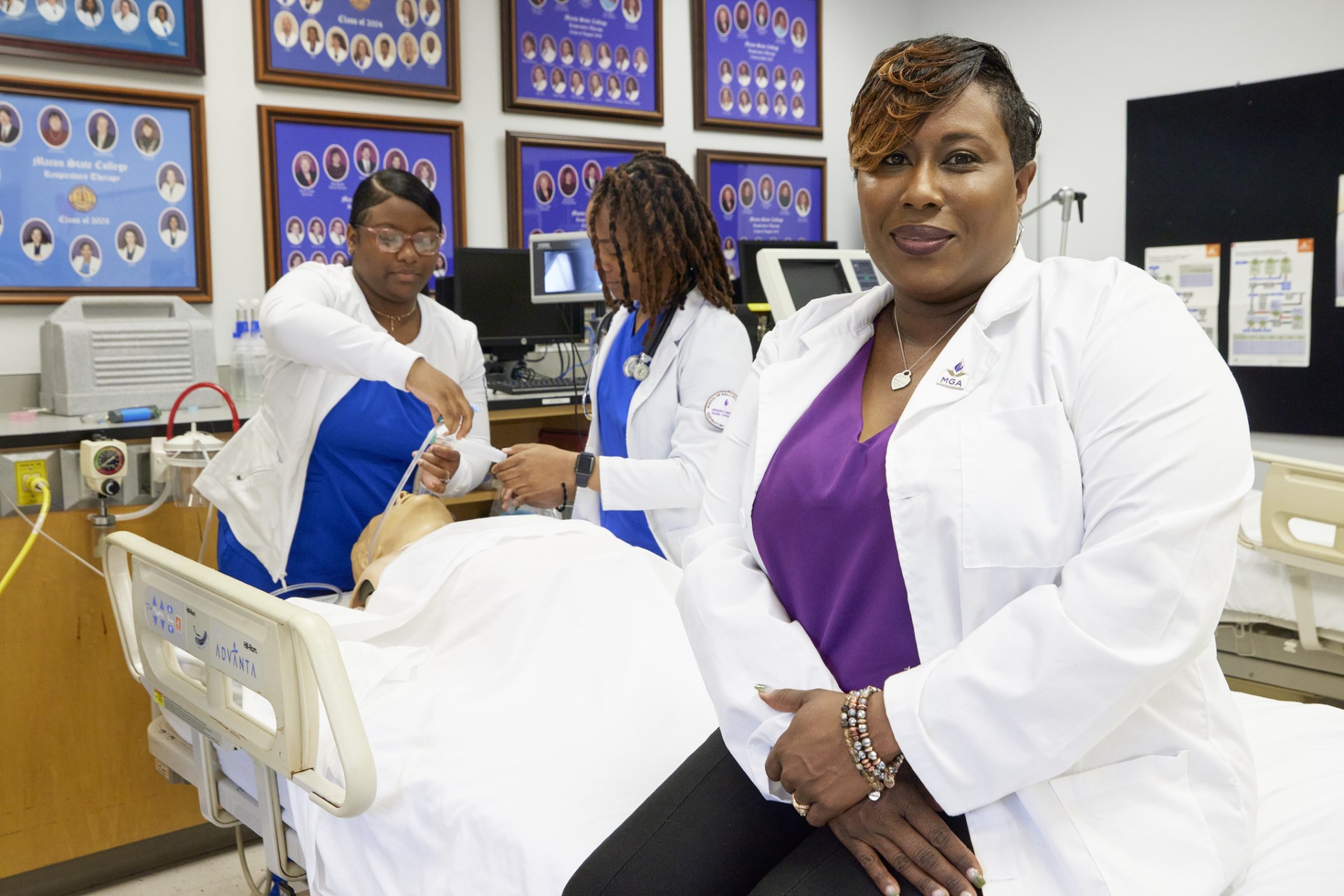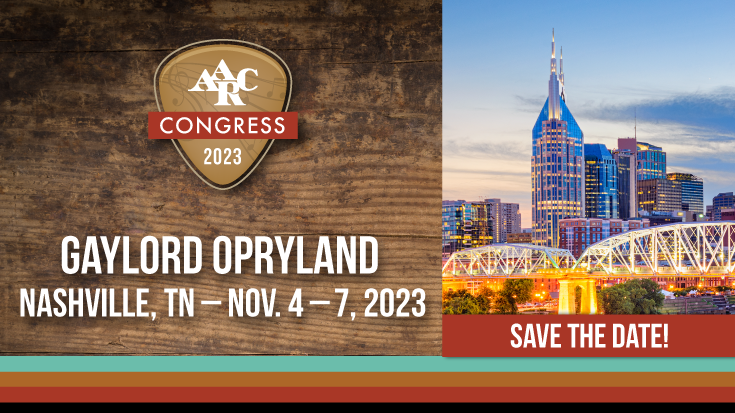
Clinical simulation has become a big part of health care education and respiratory care is no exception. As simulators have become more and more sophisticated, though, it has been a challenge for educators to validate their own expertise in the area.
The Society for Simulation in Healthcare has stepped in with a certification program for professionals involved in the health care simulation community. Educators who earn the Certified Healthcare Simulation Educator® (CHSE) credential have demonstrated their ability to run successful simulations for educational institutions and health care providers.
Those who earn the Certified Healthcare Simulation Educator-Advanced have gone even further in validating their skills. Jasmine Brown, MS, RRT, RRT-ACCS, COPD-Ed, CHSE, CHSE-A, an associate professor and director of clinical education at Middle Georgia State University (MGA) in Macon, earned her CHSE-A in May, and may be the first RT in the nation with the certification.
Teri Miller, MEd, RRT, CPFT, FAARC, is chair of the RT department at MGA, and she believes Brown’s accomplishment bodes well for her department and the profession as a whole.
“Jasmine’s work with our students in this area has demonstrated improved credentialing outcomes as well as a high level of enthusiasm by our students for these experiences,” she said. “In achieving CHSE-A designation, she now has a credential that is valued by the simulation community and that demonstrates her commitment in this area. For the respiratory therapy profession, this is one more area in health care in which we are working to have representation that reflects our role as an essential caregiver on the health care team.”
Bringing something new to the table
Brown says her interest in clinical simulation grew out of her position as the junior member of the faculty at MGA. “My journey to simulation spawned from a desire to bring something to the table in my RT department,” she said. “I am the youngest member of a very seasoned department — people who have been part of the profession almost longer than I have been alive.”
She was looking for something unique to add to this dynamic team, and when she stumbled across a simulator in a locked room, she decided that could be it. Brown says she started small, but slowly but surely she built a clinical simulation program for the department from the ground up.
Today it’s a fully integrated part of the curriculum and supports nearly all of the didactic education received by RT students — something Brown believes is important because it helps them apply their knowledge in a safe place and identify areas for growth.
The faculty benefits too. “As an educator, simulation helps me identify the gaps between knowledge and clinical application, as well as highlight areas of content that educators need to consider for improvement,” she said.
The simulation program has also paid off in terms of improving graduate success rates on the NBRC Clinical Simulation Exam, as evidenced by Brown’s abstract published in Respiratory Care titled The Impact of High-Fidelity Simulation on Student Performance on the National Board Exams in Respiratory Therapy.
Increasing her commitment
Brown first learned about the Certified Healthcare Simulation Educator credential from fellow educator Samantha Davis, MSRC, RRT, RRT-NPS, CHSE, FAARC. Once she learned more about the requirements, she realized she already possessed most of them simply from having built the simulation program at MGA.
She earned her CHSE and eventually decided to go after the CHSE-A, which is not a traditional exam like the CHSE but a reflection of an educator’s body of work in simulation that is awarded after a review of a simulation portfolio.
“The CHSE-A is different because it is based on your contribution and the impact of your simulation practices outside of your job obligations,” she said. ”There is more focus on the overall impact in your community, service, advocacy, and state and national contributions.”
Brown says RTs are often underrepresented and sometimes misrepresented in the simulation community and having more RTs with the CHSE and especially the CHSE-A could help improve that situation.
Forging new career paths
Samantha Davis, who introduced Brown to the CHSE-A, believes her accomplishment will do just that.
“Only a handful of respiratory therapists have earned the CHSE credential, but it’s important that more do,” she said. “For decades respiratory therapists have forged new career paths in environments where we’ve never existed. Simulation is no different. Our clinical expertise and technical knowledge have prepared us well and it’s time to make our mark.”
Teri Miller says having Brown achieve this credential from an organization that is mostly comprised of nurses and physicians puts RTs one step closer to a greater role in simulation technology and curricular development.
“I firmly believe having respiratory therapists involved in interprofessional associations such as the Society for Simulation in Healthcare is essential to the growth of our profession and the delivery of high-quality care at the bedside,” she said. “I look forward to seeing more RTs join the ranks. We are better together!”
Tips for success
Jasmine Brown has these tips for educators who are thinking about the CHSE or CHSE-A —
- Go to the CHSE section of the Society for Simulation in Healthcare website. (It gives you the matrix for all simulation credentials.)
- Keep of a record of any simulation activity you conduct.
- Collect data on your simulation activities. (You can always create original research.)
- Move outside of your comfort zone. (Volunteer to talk at state affiliate meetings, etc.)
- Find a simulation mentor. (I had an RT mentor and a nursing mentor.)
- Get involved in simulation outside of your job description.
People are calling Jasmine Brown a trailblazer for her accomplishment and she is honored to hear that word used in conjunction with her achievement. She urges more of her colleagues to join her.
“For RT educators who use simulation, I encourage you to study and test for the CHSE,” she said. “If you already have your CHSE go ahead and try for the CHSE-A. I feel that the CHSE-A is just means increasing your commitment to helping others. As an advanced educator, I hope that it opens the door for the RT profession to be more included in the simulation community.”
Email newsroom@aarc.org with questions or comments, we’d love to hear from you.
















